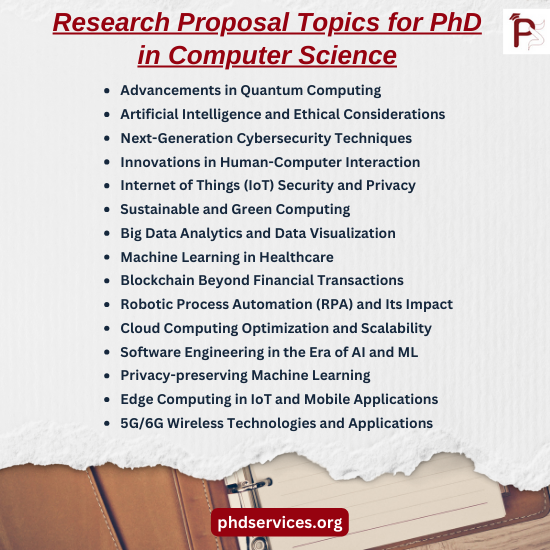Get your research proposal ideas, topics and writing services for all areas of Computer Science from phdservices.org team. We assure that our proposal meets the rigorous standards of your university. Recently, there are different types of research topics evolving in the area of computer science. Researchers can decide a suitable topic according to their skills and abilities. We provide you a list of various feasible research topics which are important as well as related to this domain:
How do you write a project proposal for computer science?
Computer Science is the most advanced scientific field in research which is evolving rapidly. The process of writing a project proposal in this domain is usually a rewarding task. It follows certain steps and requires in-depth knowledge related to this area. We implement the following formatted procedure to write a computer science project proposal efficiently:

A powerful marketing device is Project proposals. They aim to convince decision-makers with the resources to support your computer science project. Just like a cover letter for a job, the proposal must outline how the project aligns with the goals of the university. So, stay in touch with phdservices.org we share proposals that exceeds your expectations.
